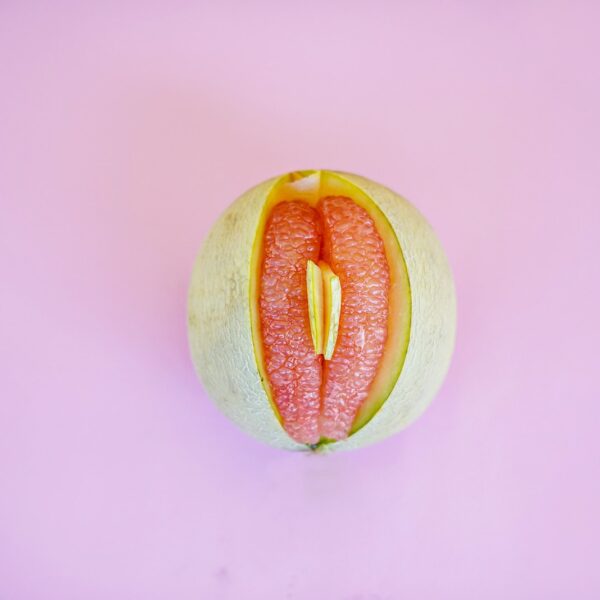Pain in your vagina or vulva is never normal and should not be ignored. In fact, it could be a sign of an infection or a medical issue that requires immediate attention.
We consulted three experts to fully understand what causes your vulva to hurt after sexual penetration and how you can get relief. The answers might surprise you:
Inadequate lubrication
Vaginal discomfort is common and usually does not indicate a serious health problem. However, if it becomes frequent or does not improve over time, your doctor may recommend a range of tests to find the cause. These might include a vaginal examination or taking samples of the discharge. Some of the most common causes of vaginal pain are bacterial vaginosis, a condition caused by an overgrowth of the bacteria naturally found in your vulva, and yeast infections, which often have a foul-smelling, grayish-white discharge that smells like rotten fish. These infections can also be caused by a sexually transmitted infection called Trichomonas vaginalis.
Insufficient lubrication can be caused by hormone changes such as menopause or birth control pills, certain medications including antihistamines and some heart, blood pressure and psychiatric medicines, as well as medical conditions such as diabetes or autoimmune diseases. A number of symptoms occur when a woman has insufficient lubrication, from pain and discomfort during intercourse to itching and urinary frequency. This is known as vulvodynia and can affect women of all ages.
To avoid lubrication problems, make sure to use unscented tampons and pads and to wash your vagina gently and thoroughly after every use. It is also a good idea to rinse your genital area with water after using the toilet and to avoid irritants such as scented soaps and wands or douches that go inside your vulva.
Hormonal changes
A vaginal pain that comes and goes during your menstrual cycle might be due to hormone changes. If you experience this type of pain, your doctor will likely diagnose it with a pelvic exam and blood tests. These will help determine if you have a condition such as polycystic ovary syndrome (PCOS), which can cause soreness and tenderness.
Yeast infections and herpes can also cause vulva pain. These conditions are easily treatable with prescription medication.
If you have a medical condition such as high blood pressure or diabetes, it may affect your circulation and increase your risk of vaginal problems. If you have one of these medical conditions, it’s important to talk with your doctor about ways to prevent soreness and odor, such as wearing loose clothing and using natural lubrication.
Vaginal pain is common, but it should never be ignored. It could be a sign of a serious health problem, such as an STI or cysts.
It’s important to remember that the term “vagina” refers to both the internal organ and the labia and skin that form your vulva. Pain in these areas is called vulvodynia. While some symptoms of vulvodynia can be found with an over-the-counter test, most of the time these symptoms require a gynecologist to evaluate and treat them properly. The right healthcare provider will take your concerns seriously and will work diligently to figure out what is causing your discomfort.
Trauma
There are a lot of reasons your vagina can feel sore after sexual penetration. Sometimes, though, the pain isn’t because of sex and can point to a more serious problem. In the most severe cases, a sore vagina can even be a sign of an STI.
Firstly, it’s important to make sure you’re actually experiencing vaginal pain and not pelvic pain, as the two are very different. If you’re not sure, see your GP or lady doctor for an assessment and a urine test.
The pain and tenderness that you experience in your vulva may be due to trauma. This includes injury or irritation that can occur from accidents, sex, a miscarriage, surgery or having a childbirth procedure like a Caesarean section (episiotomy). It also includes having a bartholin cyst, a condition where there is a hard lump or visible swelling in the outer tissues of your vulva. Or, it could be from a condition called vulvodynia, which is when your muscles tense up before and during intercourse and can cause painful penetration (dyspareunia).
Another reason your vagina might hurt after sex is if you have fibroids, which are the most common type of benign uterine tumor. They can develop as a result of hormonal changes like being pregnant or reaching the menopause, but they can also be caused by lifestyle factors, such as eating a diet high in fat or drinking alcohol regularly. They can be diagnosed with a pelvic exam or ultrasound.
Fungus
Fungus, also known as candida, normally lives on the skin and inside the mouth, digestive tract and vagina without causing symptoms. But when conditions change in the vagina and allow the fungus to grow out of control, an infection can result. Yeast infections are more common in women than men and can be mild or severe. They aren’t a sexually transmitted infection (STI). Signs of a yeast infection include itching that may be painful with sex or peeing, redness and swelling in the vagina and vulva, and a thick white vaginal discharge with the texture of cottage cheese.
The fungus candida albicans causes most vaginal yeast infections. Other yeast infections are caused by different species of Candida. All humans have Candida on their bodies. Fungus and bacteria that live in the gastrointestinal tract and vagina usually keep each other in balance, but when there are changes in the environment of the gastrointestinal tract or vagina, like with certain medicines or during pregnancy, these organisms can overgrow and cause a yeast infection.
A yeast infection doesn’t require treatment, and over-the-counter creams are available to help relieve itching. But if you have repeated episodes of a yeast infection, talk to your Planned Parenthood provider about what might be causing them.




Leave a Comment